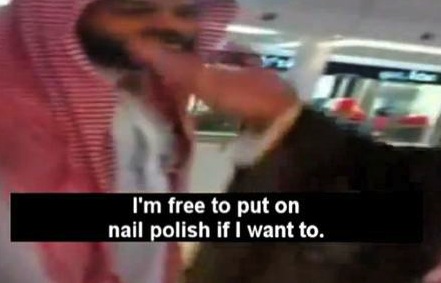In an audio track layered over an image of Lee Miller (in the first volume of Histoire(s) du cinéma) Godard broods over the correlation between art and artifice: 'Cinema is not part of the communication industry or the entertainment industry. It is part of cosmetics, the industry of masks. A minor branch of the industry of lies.”
If cinema is part of the industry of masks, then what industry does cosmetics ('the industry of masks') belong to? Etymology is not a zero-sum game but I am struck by the the alignment of cosmetics (from French cosmétique, derived from Greek kosm?tikos, from kosmein 'arrange or adorn') and order. The friendliness between cosmetics (from kosmos, 'order or adornment') and aesthetics (from aisth?ta ‘perceptible things’) only serves to embolden the corollated relationship to sensible distribution and arrangement.
There is another regime endowed with the power of ordering space and perceptible things (and also their synthesis, the spatial arrangement in which things appear).
The U.S. Food and Drug Administration defines cosmetics as 'articles intended to be applied to the human body for cleansing, beautifying, promoting attractiveness, or altering the appearance without affecting the body's structure or functions' (emphasis added). Couldn't the operation of altering appearance without affecting structure and function be a foundational and concrete thesis on police?
Sometimes cosmetics and police regimes align literally. In Saudi Arabia the Committee for the Promotion of Virtue and the Prevention of Vice tried to force a woman out of the mall after they spotted her wearing nail polish. The difference between this particular harassment by the volunteer vice squad and hundreds of others like it is because 'Manicure Girl' filmed the exchange and posted the video online; the CPVPV later filed a formal complaint against her for doing so.
Another confrontation involved a passenger and a flight attendant at a Las Vegas, Nevada airport. A woman painting her nails on the airplane was arrested after the Southwest Airlines flight landed:
All charges against the passenger for using 'abusive profane language' were eventually dismissed by the prosecutor, but not before Ms. Daniels was placed in a holding cell and detained for 10 hours.
The incident developed after the passenger was told by a flight attendant to stop painting her nails because the odor of her nail polish remover was bothering other passengers. Ms. Daniels complied, but later completed finishing her nails in an aircraft bathroom, believing that doing so in the privacy of the toilet would be less offensive to others.
